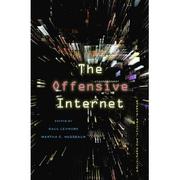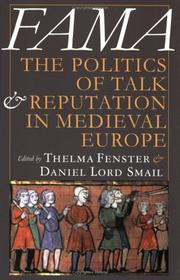| Listing 1 - 10 of 17 | << page >> |
Sort by
|
Book
ISBN: 0191746762 Year: 2015 Publisher: Oxford : Oxford University Press,
Abstract | Keywords | Export | Availability | Bookmark
 Loading...
Loading...Choose an application
- Reference Manager
- EndNote
- RefWorks (Direct export to RefWorks)
The use of character in the criminal trial raises a number of controversial issues such as the nature of criminal responsibility, the link between past and future behaviour, and the way juries and judges reason about evidence of prior wrongdoing. This book reassesses and reflects on the significance of the law's increasing emphasis on character.
Evidence (Law) --- Reputation (Law) --- Law - Non-U.S. --- Law, Politics & Government --- Law - Great Britain --- Evidence, Character --- Fama publica --- Character evidence
Book
ISBN: 9780191710858 0191710857 128358140X 0191566543 Year: 2007 Publisher: Oxford [UK] ; New York : Oxford University Press,
Abstract | Keywords | Export | Availability | Bookmark
 Loading...
Loading...Choose an application
- Reference Manager
- EndNote
- RefWorks (Direct export to RefWorks)
Lawrence McNamara develops a new theory of reputation through a comparative analysis of how courts in England, the United States and other common law countries have responded to shifting attitudes towards moral values and developed new tests for what should count as 'defamatory'.
Libel and slander. --- Reputation (Law) --- Evidence, Character --- Fama publica --- Character evidence --- Evidence (Law) --- Calumny --- Defamation --- Libel and slander --- Slander --- Torts --- Law and legislation


ISBN: 0674058763 9780674058767 9780674050891 0674050894 9780674064317 0674064313 Year: 2012 Publisher: Cambridge, MA
Abstract | Keywords | Export | Availability | Bookmark
 Loading...
Loading...Choose an application
- Reference Manager
- EndNote
- RefWorks (Direct export to RefWorks)
The Internet has been romanticized as a zone of freedom. The alluring combination of sophisticated technology with low barriers to entry and instantaneous outreach to millions of users has mesmerized libertarians and communitarians alike. Lawmakers have joined the celebration, passing the Communications Decency Act, which enables Internet Service Providers to allow unregulated discourse without danger of liability, all in the name of enhancing freedom of speech. But an unregulated Internet is a breeding ground for offensive conduct. At last we have a book that begins to focus on abuses made possible by anonymity, freedom from liability, and lack of oversight. The distinguished scholars assembled in this volume, drawn from law and philosophy, connect the absence of legal oversight with harassment and discrimination. Questioning the simplistic notion that abusive speech and mobocracy are the inevitable outcomes of new technology, they argue that current misuse is the outgrowth of social, technological, and legal choices. Seeing this clearly will help us to be better informed about our options. In a field still dominated by a frontier perspective, this book has the potential to be a real game changer. Armed with example after example of harassment in Internet chat rooms and forums, the authors detail some of the vile and hateful speech that the current combination of law and technology has bred. The facts are then treated to analysis and policy prescriptions. Read this book and you will never again see the Internet through rose-colored glasses.
Internet --- Libel and slander --- Privacy, Right of --- Reputation (Law) --- Evidence, Character --- Fama publica --- Character evidence --- Evidence (Law) --- Law and legislation --- Diffamation --- Droit à la vie privée --- Droit
Book
ISBN: 0801464609 0801464137 9780801464133 9780801450310 0801450314 Year: 2011 Publisher: Ithaca, NY
Abstract | Keywords | Export | Availability | Bookmark
 Loading...
Loading...Choose an application
- Reference Manager
- EndNote
- RefWorks (Direct export to RefWorks)
In The Shadow of the Past, Gregory D. Miller examines the role that reputation plays in international politics, emphasizing the importance of reliability-confidence that, based on past political actions, a country will make good on its promises-in the formation of military alliances. Challenging recent scholarship that focuses on the importance of credibility-a state's reputation for following through on its threats-Miller finds that reliable states have much greater freedom in forming alliances than those that invest resources in building military force but then use it inconsistently.To explore the formation and maintenance of alliances based on reputation, Miller draws on insights from both political science and business theory to track the evolution of great power relations before the First World War. He starts with the British decision to abandon "splendid isolation" in 1900 and examines three crises-the First Moroccan Crisis (1905-6), the Bosnia-Herzegovina Crisis (1908-9), and the Agadir Crisis (1911)-leading up to the war. He determines that states with a reputation for being a reliable ally have an easier time finding other reliable allies, and have greater autonomy within their alliances, than do states with a reputation for unreliability. Further, a history of reliability carries long-term benefits, as states tend not to lose allies even when their reputation declines.
Alliances. --- Reputation (Law) --- Alliances --- Treaties of alliance --- International relations --- Treaties --- Evidence, Character --- Fama publica --- Character evidence --- Evidence (Law) --- Law and legislation --- Europe --- Foreign relations

ISBN: 0801488575 0801439396 9780801488573 9780801439391 Year: 2003 Publisher: Ithaca (N.Y.): Cornell university press
Abstract | Keywords | Export | Availability | Bookmark
 Loading...
Loading...Choose an application
- Reference Manager
- EndNote
- RefWorks (Direct export to RefWorks)
Law, Medieval --- Reputation (Law) --- Social aspects --- History --- -Law, Medieval --- -Medieval law --- Fama publica --- Evidence (Law) --- -Social aspects --- Social aspects. --- -History --- Medieval law --- Evidence, Character --- Character evidence --- Law, Medieval - Social aspects --- Reputation (Law) - Europe - History - To 1500
Book
ISBN: 0190609567 0190609540 9780190609566 0190609559 Year: 2018 Publisher: New York, NY : Oxford University Press,
Abstract | Keywords | Export | Availability | Bookmark
 Loading...
Loading...Choose an application
- Reference Manager
- EndNote
- RefWorks (Direct export to RefWorks)
Reputations abound in world politics, but we know little about how reputations form and evolve: namely, how do countries form reputations? Do these reputations affect interstate politics in the global arena? In this work, Crescenzi develops a theory of reputation dynamics to help identify when reputations form in ways that affect world politics, both in the realms of international conflict and cooperation.
International relations. --- Reputation (Law) --- Evidence, Character --- Fama publica --- Character evidence --- Evidence (Law) --- Coexistence --- Foreign affairs --- Foreign policy --- Foreign relations --- Global governance --- Interdependence of nations --- International affairs --- Peaceful coexistence --- World order --- National security --- Sovereignty --- World politics
Book
ISBN: 1282437518 9786612437519 0300151691 9780300151695 9781282437517 9780300126853 0300126859 6612437510 Year: 2008 Publisher: New Haven, Conn. Yale University Press
Abstract | Keywords | Export | Availability | Bookmark
 Loading...
Loading...Choose an application
- Reference Manager
- EndNote
- RefWorks (Direct export to RefWorks)
Early modern Spain has long been viewed as having a culture obsessed with honor, where a man resorted to violence when his or his wife's honor was threatened, especially through sexual disgrace. This book-the first to closely examine honor and interpersonal violence in the era-overturns this idea, arguing that the way Spanish men and women actually behaved was very different from the behavior depicted in dueling manuals, law books, and "honor plays" of the period. Drawing on criminal and other records to assess the character of violence among non-elite Spaniards, historian Scott K. Taylor finds that appealing to honor was a rhetorical strategy, and that insults, gestures, and violence were all part of a varied repertoire that allowed both men and women to decide how to dispute issues of truth and reputation.
Dueling --- Criminal law --- Reputation (Law) --- Honor --- Honour --- Chivalry --- Conduct of life --- Evidence, Character --- Fama publica --- Character evidence --- Evidence (Law) --- Duels --- Fighting --- Martial arts --- Combat --- Wager of battle --- History. --- History of the law --- History of Spain --- anno 1500-1799
Book
ISBN: 227500338X 9782275003382 Year: 1995 Volume: 234 Publisher: Paris LGDJ
Abstract | Keywords | Export | Availability | Bookmark
 Loading...
Loading...Choose an application
- Reference Manager
- EndNote
- RefWorks (Direct export to RefWorks)
Status of persons --- Criminal law. Criminal procedure --- Reputation (Law) --- Personality (Law) --- Honor --- Honneur --- --Droit --- --Serment --- --Blasphème --- --Honor --- -Personality (Law) --- -Reputation (Law) --- -Fama publica --- Evidence (Law) --- Honour --- Chivalry --- Conduct of life --- -Honor --- --Status of persons --- Evidence, Character --- Fama publica --- Character evidence --- --Criminal law. Criminal procedure --- Reputation (Law) - France --- Personality (Law) - France --- Honor - France --- Droit --- Serment --- Blasphème
Book
ISBN: 1139334417 1107230764 1139084607 1280394153 1139337858 9786613572073 1139340301 113934188X 1139336983 1139338722 9781139336987 9781139084604 9781280394157 9781139340304 9781139338721 1107017726 9781107017726 9781139340304 9781139334419 9781107230767 9781139337854 6613572071 Year: 2012 Publisher: Cambridge Cambridge University Press
Abstract | Keywords | Export | Availability | Bookmark
 Loading...
Loading...Choose an application
- Reference Manager
- EndNote
- RefWorks (Direct export to RefWorks)
Efforts to expand the scope of legal protection given to reputation and brands in the Asia Pacific region have led to considerable controversy. Written by a variety of experts, the essays in this book consider the developing law of reputation and brands in a fraught area.
Brand name products --- Reputation (Law) --- Libel and slander. --- Names, Personal --- Personality (Law) --- Calumny --- Defamation --- Libel and slander --- Slander --- Torts --- Evidence, Character --- Fama publica --- Character evidence --- Evidence (Law) --- Brand names --- Branded merchandise --- Merchandise, Branded --- Name brand products --- Business names --- Commercial products --- Branding (Marketing) --- Trademarks --- Law and legislation --- Law and legislation. --- Law --- E-books --- General and Others
Book
ISBN: 1316120163 1316121259 1316133249 1316621146 1316129977 1316132153 1139381261 1316127796 1316128881 1316131068 1107031133 1322177309 9781316128886 9781139381260 9781316129975 9781107031135 9781316131060 Year: 2014 Publisher: New York
Abstract | Keywords | Export | Availability | Bookmark
 Loading...
Loading...Choose an application
- Reference Manager
- EndNote
- RefWorks (Direct export to RefWorks)
This book argues that national and international courts seek to enhance their reputations through the strategic exercise of judicial power. Courts often cannot enforce their judgments and must rely on reputational sanctions to ensure compliance. One way to do this is for courts to improve their reputation for generating compliance with their judgments. When the court's reputation is increased, parties will be expected to comply with its judgments and the reputational sanction on a party that fails to comply will be higher. This strategy allows national and international courts, which cannot enforce their judgments against states and executives, to improve the likelihood that their judgments will be complied with over time. This book describes the judicial tactics that courts use to shape their judgments in ways that maximize their reputational gains.
Courts. --- Judges. --- Judgments. --- Reputation (Law) --- Court decisions --- Court rulings --- Civil procedure --- Courts --- Criminal procedure --- Estoppel --- Judges --- Judicial process --- Jurisdiction --- Stare decisis --- Evidence, Character --- Fama publica --- Character evidence --- Evidence (Law) --- Alcaldes --- Cadis --- Chief justices --- Chief magistrates --- Justices --- Magistrates --- Judiciary --- Dispute resolution (Law) --- Judicial districts --- Law --- Procedure (Law) --- Judicial power --- Justice, Administration of --- Legal status, laws, etc. --- Officials and employees --- Law and legislation
| Listing 1 - 10 of 17 | << page >> |
Sort by
|

 Search
Search Feedback
Feedback About UniCat
About UniCat  Help
Help News
News